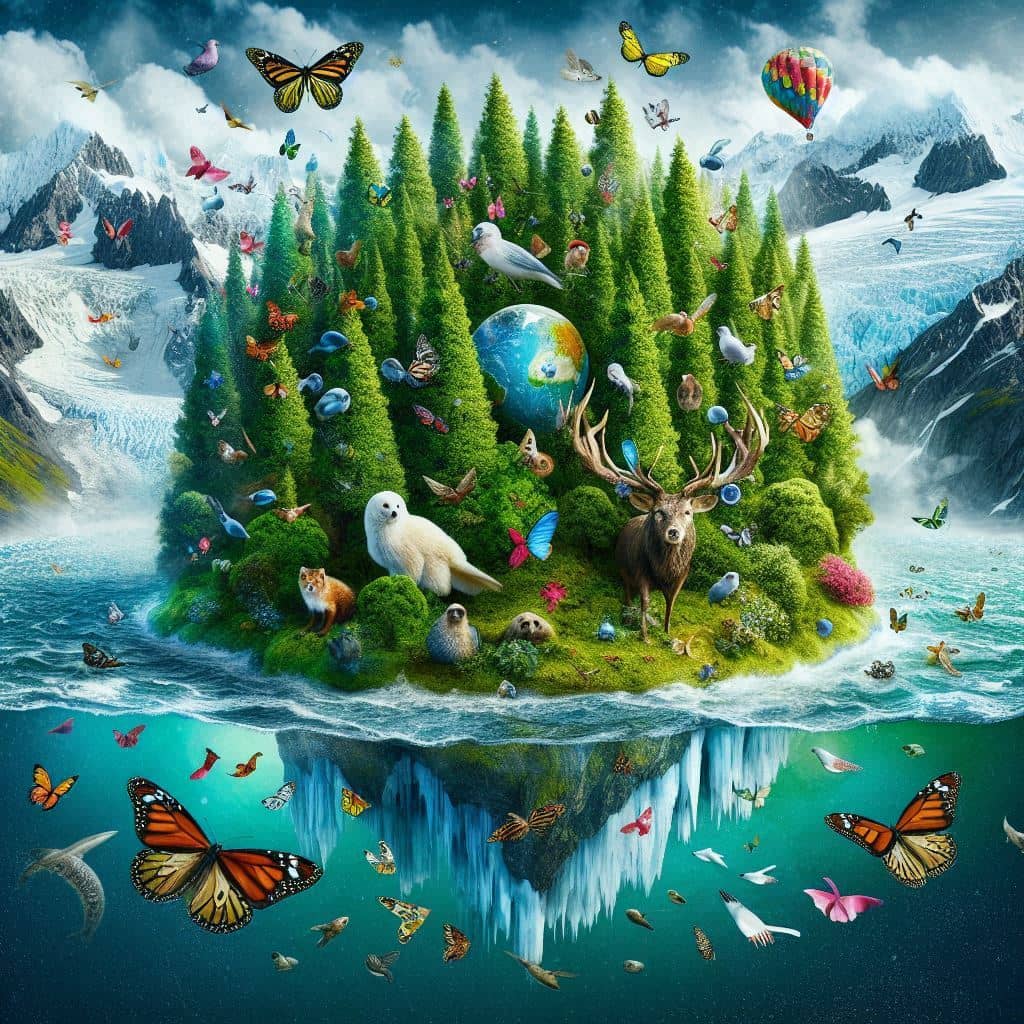The Impact of Global Warming on Fragile Ecosystems
What is Global Warming?
Global warming, characterized by the Earth’s increasing average temperatures, has profound implications for ecosystems worldwide. This phenomenon disrupts natural habitats, threatens biodiversity, and alters species interactions, leading to cascading effects on ecological balance.
Understanding Global Warming
Global-warming refers to the long-term rise in Earth’s average surface temperature due to human activities, primarily the emission of greenhouse gases like carbon dioxide and methane. These gases trap heat in the atmosphere, leading to the greenhouse effect, which results in climate change.
Effects on Biodiversity
The rise in global temperatures has led to shifts in species distributions, with many organisms moving towards the poles or to higher elevations in search of suitable habitats. This migration disrupts existing eco systems and can lead to the decline or extinction of species unable to adapt or relocate.
Habitat Destruction
Global-warming contributes to habitat loss through mechanisms such as sea-level rise, increased frequency of wildfires, and desertification. Coastal eco systems, including mangroves and coral reefs, are particularly vulnerable, facing inundation and increased salinity levels.
Altered Species Interactions
Changes in temperature and precipitation patterns affect the timing of biological events, such as flowering and migration. These phenological shifts can lead to mismatches between species, disrupting food webs and reproductive cycles.
Impact on Marine Ecosystems
Oceans absorb a significant portion of excess atmospheric heat, leading to ocean warming. This results in coral bleaching, affecting marine biodiversity and fisheries. Additionally, the acidification of oceans due to increased carbon dioxide levels poses a threat to calcifying organisms like shellfish and corals.
Terrestrial Eco systems at Risk
Forests, grasslands, and tundra eco-systems are experiencing shifts in species composition and structure. For instance, boreal forests are encroaching into tundra regions, altering the albedo effect and potentially accelerating warming.
Mitigation and Adaptation Strategies
Addressing the impacts of global-warming on eco-systems requires both mitigation and adaptation efforts. Mitigation involves reducing greenhouse gas emissions through renewable energy adoption and energy efficiency. Adaptation strategies include conserving and restoring habitats, establishing wildlife corridors, and implementing sustainable land-use practices.
Global-warming poses a significant threat to eco systems, leading to biodiversity loss, habitat destruction, and altered species-interactions. Comprehensive strategies that combine mitigation and adaptation are essential to preserve ecological balance and ensure the resilience of natural systems.
